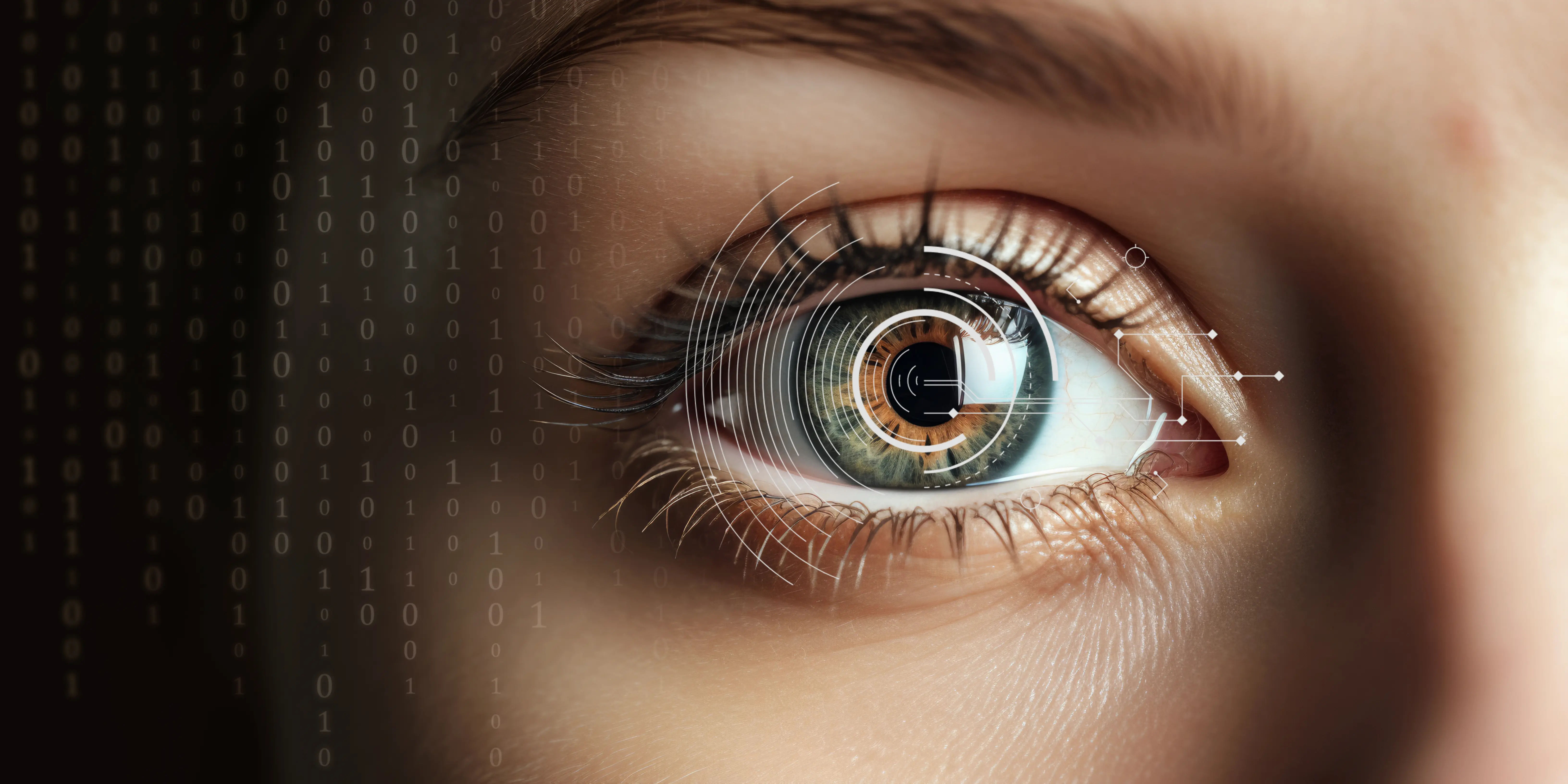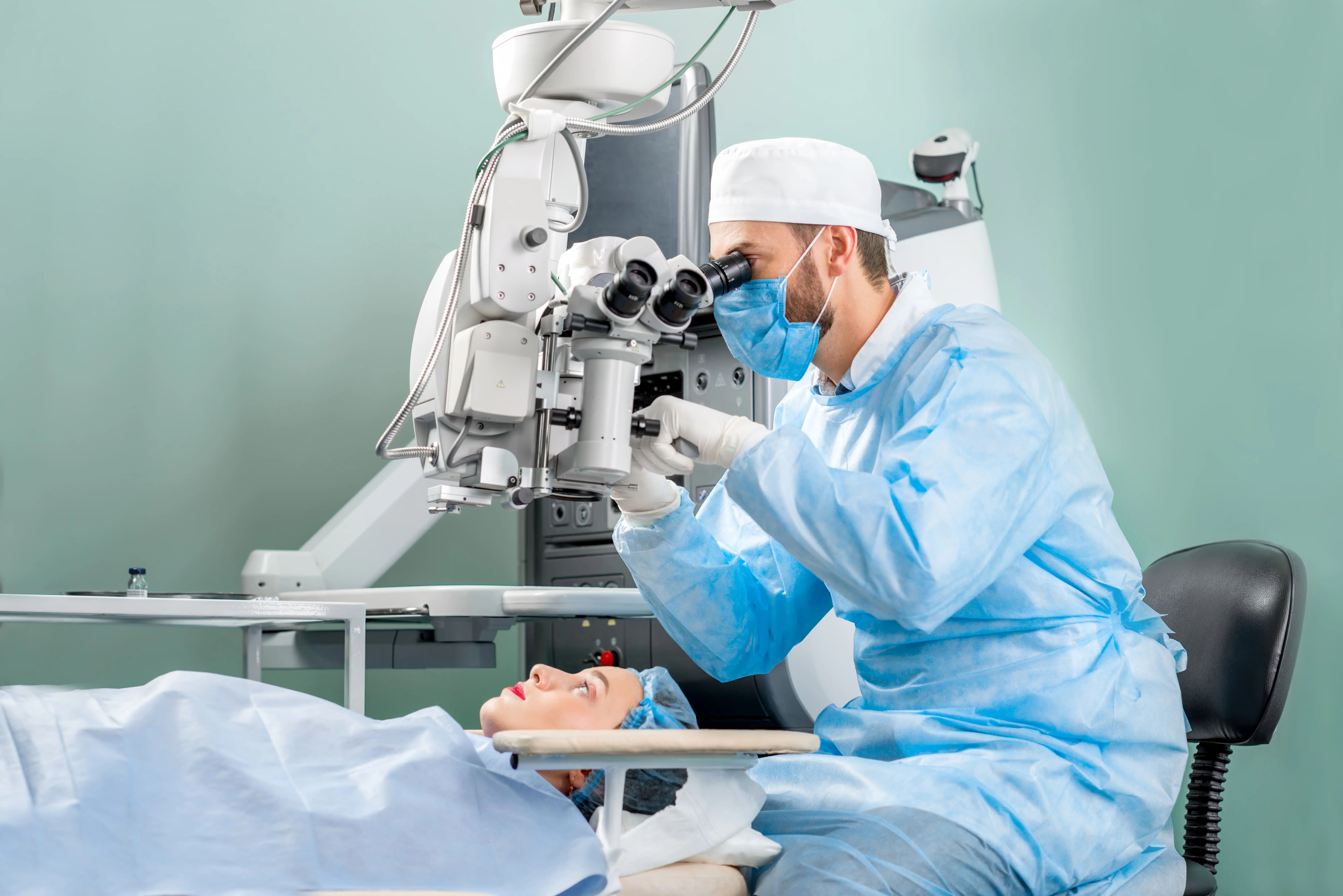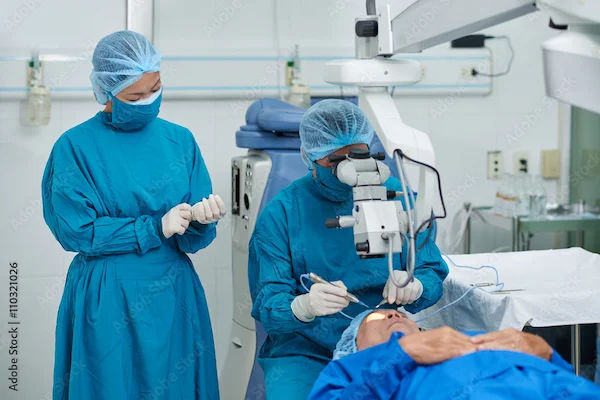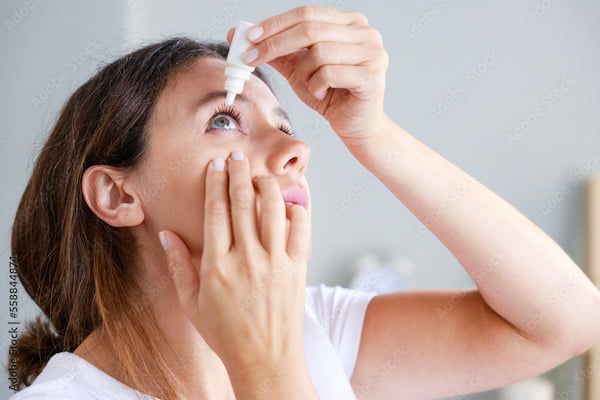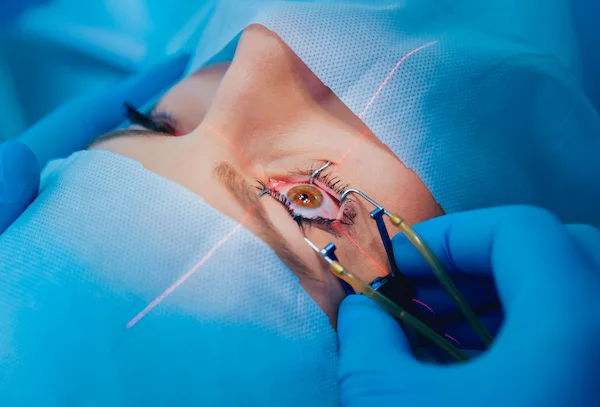Contacts For Reading After Cataract Surgery
Discover how contact lenses can help improve near vision after cataract surgery. Learn about options, benefits, and what to expect.

Written by
Last updated on 13th Jan, 2026

Introduction
Cataract surgery is a common and highly successful procedure that helps restore clear vision by replacing the eye’s cloudy natural lens with an artificial intraocular lens (IOL). While the surgery significantly improves vision, many patients still need reading glasses or contacts for close-up tasks like reading, writing, or using a smartphone.
If you’ve recently had cataract surgery and are wondering about your options for reading glasses or contacts, this guide will help you understand the best choices for your needs.
Why Do You Still Need Reading Glasses or Contacts After Cataract Surgery?
During cataract surgery, the natural lens of your eye is replaced with an artificial lens (IOL). While modern IOLs can correct distance vision, they may not fully adjust for near vision, especially if you had presbyopia (age-related difficulty in reading small print) before surgery.
Common Reasons for Needing Reading Aids After Surgery:
Monofocal IOLs: These lenses correct vision for one distance (usually far vision), meaning you’ll still need reading glasses for close-up tasks.
Multifocal or Accommodating IOLs: These lenses provide a range of vision (near, intermediate, and far), reducing dependence on glasses, but some patients may still need slight magnification for fine print.
Residual Astigmatism: If you had astigmatism before surgery and it wasn’t fully corrected, you might need glasses or contacts for sharper vision.
Options for Reading Correction After Cataract Surgery
Here are some options for reading correction after a cataract surgery:
1. Reading Glasses
The simplest and most common solution.
Available in various magnification strengths (usually +1.00 to +3.00).
Can be purchased over-the-counter or prescribed for customised correction.
To Know More Consult Top Ophthalmologists
2. Contact Lenses
If you prefer not to wear glasses, contact lenses can be a great alternative.
Types of Contacts for Reading After Cataract Surgery:
Monovision Contacts: One eye is corrected for distance, and the other for near vision. This mimics how multifocal IOLs work.
Multifocal Contacts: These lenses have multiple zones for near, intermediate, and distance vision.
Bifocal Contacts: Similar to bifocal glasses, with distinct sections for distance and reading.
Pros of Contacts for Reading:
No need to carry reading glasses.
Better peripheral vision than glasses.
More natural vision for some people.
Cons of Contacts for Reading:
May take time to adjust.
Requires proper hygiene to avoid infections.
Some people experience dryness or discomfort.
3. Over-the-Counter vs. Prescription Contacts
Over-the-counter readers work well for mild magnification needs.
Prescription contacts are better if you have astigmatism or need precise correction.
Tips for Adjusting to Reading Contacts After Cataract Surgery
1. Give Yourself Time: It may take a few days to adapt to monovision or multifocal contacts.
2. Keep Eyes Moist: Use lubricating eye drops if contacts feel dry.
3. Follow Eye Doctor’s Advice: Get regular check-ups to ensure the right fit and prescription.
4. Maintain Hygiene: Always clean and store contacts properly to prevent infections.
When to See a Doctor?
If you experience:
Blurry vision even with glasses/contacts
Eye discomfort or redness
Difficulty adjusting to new lenses
Consult your ophthalmologist to check if your prescription needs adjustment or if another solution (like LASIK or lens exchange) is needed.
Conclusion
Cataract surgery restores clear vision, but many patients still need reading aids. Whether you choose glasses or contacts depends on your lifestyle and comfort. If you’re unsure, your eye doctor can help you decide the best option.
If you're experiencing vision issues after cataract surgery, book an appointment with an Apollo24|7 eye specialist today for personalised advice!
Consult Top Ophthalmologists
To Know More Consult Top Ophthalmologists
Dr Santosh Ramchandani
Ophthalmologist
16 Years • MBBS MS OPTHALMOLOGY
Indore
Apollo Hospitals Vijay Nagar, Indore

Dr. Zennat Tajmin Shah
Ophthalmologist
24 Years • MBBS,DNB (Ophthalmology)
Kolkata
Titanium Eye Care, Kolkata

Dr Ranojit Basu
Ophthalmologist
24 Years • MBBS, DNB Ophthalmology, Diploma in Ophthalmic Medicine and. Surgery
Kolkata
Titanium Eye Care, Kolkata

Dr. Mridula V Amarnath
Ophthalmologist
12 Years • MBBS,MS (Opthalomology)
Bengaluru
Apollo Medical Center, Marathahalli, Bengaluru

Dr. Sujit Pahari
Ophthalmologist
22 Years • MBBS, DNB, DOMS Ophthalmologist/ Eye Surgeon. FIC (Ophthal).
Bilaspur
Apollo Hospitals Seepat Road, Bilaspur
(25+ Patients)
Consult Top Ophthalmologists
Dr Santosh Ramchandani
Ophthalmologist
16 Years • MBBS MS OPTHALMOLOGY
Indore
Apollo Hospitals Vijay Nagar, Indore

Dr. Zennat Tajmin Shah
Ophthalmologist
24 Years • MBBS,DNB (Ophthalmology)
Kolkata
Titanium Eye Care, Kolkata

Dr Ranojit Basu
Ophthalmologist
24 Years • MBBS, DNB Ophthalmology, Diploma in Ophthalmic Medicine and. Surgery
Kolkata
Titanium Eye Care, Kolkata

Dr. Mridula V Amarnath
Ophthalmologist
12 Years • MBBS,MS (Opthalomology)
Bengaluru
Apollo Medical Center, Marathahalli, Bengaluru

Dr. Sujit Pahari
Ophthalmologist
22 Years • MBBS, DNB, DOMS Ophthalmologist/ Eye Surgeon. FIC (Ophthal).
Bilaspur
Apollo Hospitals Seepat Road, Bilaspur
(25+ Patients)
